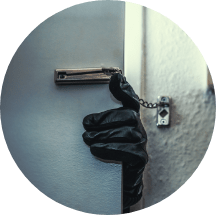Child Custody and Visitation Matters
What does “the best interests of the child” mean?
The law in Virginia provides an answer to this question. This requirement means that a judge will have to consider the following factors:
1. The age and physical and mental condition of the child, giving due consideration to the child’s changing developmental needs;
The age and physical and mental condition of each parent;
The relationship existing between each parent and each child, giving due consideration to the positive involvement with the child’s life, the ability to accurately assess and meet the emotional, intellectual, and physical needs of the child;
The needs of the child, giving due consideration to other important relationships of the child, including but not limited to siblings, peers, and extended family members;
The role that each parent has played and will play in the future, in the upbringing and care of the child;
The propensity of each parent to actively support the child’s contact and relationship with the other parent, including whether a parent has unreasonably denied the other parent access to or visitation with the child;
The relative willingness and demonstrated ability of each parent to maintain a close and continuing relationship with the child, and the ability of each parent to cooperate in and resolve disputes regarding matters affecting the child;
The reasonable preference of the child, if the court deems the child to be of reasonable intelligence, understanding, age, and experience to express such a preference;
Any history of (i) family abuse: (ii) sexual abuse; (iii) child abuse; or (iv) an act of violence, force, or threat that occurred no earlier than 10 years prior to the date a petition is filed.
Given the law, the Court considers a lot of information before making custody and visitation determinations. This can include the mental health of the parents, substance abuse or use by the parents, the prior involvement of the Department of Social Services or Child Protective Services with the family, the ability of the parents to co-parent, and many more issues.
Department of Social Services - Child Protective Services Investigation
It is surprising and confusing when a family becomes the subject of a Child Protective Services (hereinafter “CPS”) Investigation. It is vitally important that individuals who are the subject of these types of investigations are aware of their rights and subsequent recourse throughout the duration of the investigation. If you are the subject of a CPS investigation, it is highly recommended that you consult an attorney that is experienced with the nuance these cases involve. Oftentimes, a CPS investigation can have significant and long-term consequences to your family, up to and including the removal of your child(ren).
Once a CPS investigation has been initiated, the local Department of Social Services (hereinafter “the Department”) has 45 days to complete its’ investigation barring certain exceptions. Upon the conclusion of the CPS investigation, the Department may enter an administrative finding of abuse and/or neglect against a parent or other caregiver. The parent or caregiver has several levels of appeal available to them once a finding has been entered.
The first level of appeal is informal and occurs at the local level. This is known as a local conference. This conference is usually conducted by the local director of the local social services agency or their designee. Should the finding be upheld at the local level, the appellant may, within 30 days of receiving notice of said finding, request, in writing, an administrative appeal at the State level.
The second level of appeal is a formal administrative hearing held by an impartial hearings officer, all of whom are licensed attorneys. At the administrative hearing, the Department must prove, by a preponderance of the evidence, that the local agency made their finding in accordance with both the law and with Social Services own policy. It is extremely important that parents and caregivers have representation that understands the very strict policy to which the Department must adhere. Findings are often overturned on a procedural error by the Department. If the parent or caregiver is not satisfied with the outcome of the administrative hearing, they may appeal within 30 days of receiving notice of the hearing officer’s decision or within 30 days from the decision being mailed to the recipient, whichever occurs first. The notice of appeal to the circuit court must be sent to Commissioner of the Virginia Department of Social Services.
The third level of appeal occurs in the circuit court of the locality that made the original finding. The circuit court conducts a review of the record from the state administrative hearing.
Child Visitation FAQ
Having the best possible chance at establishing evidence of these factors in your favor requires an attorney who has knowledge of these factors, and also knowledge of the diverse facts and circumstances of your case. This requires a great deal of communication and preparation between the attorney and the client and requires an attorney who knows and regularly practices in front of the judges who will make the decision. The right attorney will provide a detailed assessment of the strengths and weaknesses of your case and will also assist in identifying witnesses, documents, and other types of evidence that will get you the best result.
Generally speaking, both parents of a child have equal rights and responsibilities to their child or children. Virginia law does not start with a preference for either parent. There are four different kinds of custody recognized in Virginia – (1) joint legal custody, (2) Joint Physical Custody, (3) Sole Custody and (4) a combination of legal and physical custody. It is important to recognize the differences. Joint Legal Custody means that both parents share the responsibility for the care and control of the child and both have authority to make decisions regarding the child’s life, such as medical care. Parents can have joint legal custody even if the child or children reside primarily with one parent. Joint Physical Custody is where both parents share physical custody and care of the child. If the physical custody of a child is not shared or joint, this is where the Court will have to make decisions about the visitation rights of the non-custodial parent. Sole Custody is when one parent has the primary responsibility for the child and makes all daily decisions about the child’s life.
The determination of custody and visitation must be heard in court where the ultimate decision is made by a judge when parents don’t reside together and simply cannot agree on what is in the best interests of their child or children. Hearings are also necessary when a parent is believed to be unable to address the needs of the child, is incapable of making important decisions for the child that affect the child’s life, or there are allegations of abuse or neglect.
If a determination about custody and visitation is made by the Juvenile & Domestic Relations Court, and you are unhappy with the decision, the decision can be appealed. The appeal must be filed within 10 days of the Court’s Order. While the appeal is pending, the Court’s Order remains in full force and effect, so it is important to make sure the Order is followed. It is important to have the advice of a knowledgeable attorney so that the appealing parent has an accurate idea of what to expect in another hearing and an accurate idea of how to better the chances at a more favorable outcome.
The answer is yes, you can request visitation. To have the best chances at success in ensuring visitation with a grandchild, you should have an attorney to guide you through the process.
If there has been a “material change in circumstances” then the Court can absolutely revisit and modify a custody or visitation order. In this situation, the parent seeking the modification has two responsibilities as far as the Court is concerned: 1) show that there has in fact been a material change in circumstances, and 2) demonstrate that the requested modifications are in the best interest of the child.
PROTECTIVE ORDERS IN VIRGINIA
PROTECTIVE ORDERS FAQ
First and foremost, it is imperative that you carefully read the protective order. If you don’t understand the terms of the Protective Order, it is important that you consult with an attorney with familiarity with protective orders because violation of a protective order can have serious consequences.
Pursuant to Virginia Code § 18.2-60.4, violation of a civil protective order is a criminal offense. Any person who violates the provisions of a protective order is guilty of a Class 1 misdemeanor, which is punishable by up to 12 months in jail and/or a fine of up to $2500.00. Also, when a person is convicted of violating a protective order, the 12 month jail sentence cannot be suspended in its entirety, which means some amount of an active sentence must be imposed. When the violation is an alleged second offense, a person alleged to have violated the provisions of a protective order could face a mandatory minimum of 60 days in jail. A third offense, if committed within 20 years, can carry a 6 month mandatory sentence and is a Class 6 felony. If a person violates the order by committing act of assault and battery or entering the home of the protected person, the charge is a also a Class 6 Felony.
If a court determines that you are in violation of a protective order, the court must enter a new protective order not to exceed 2 years.
Absolutely. In Virginia, if you have a protective order entered against you, you cannot purchase, or transport a firearm. If you are caught attempting to purchase a firearm or transporting a firearm, it is a Class 1 Misdemeanor punishable by up to 12 months in jail and/or a fine of up to $2500.00. If you have a concealed weapons permit, you are not permitted to carry a concealed weapon AND you are required to surrender your concealed weapons permit to the jurisdiction that issued the protective order. It is imperative that you identify someone who can take possession of firearms that you have while the protective order is in effect to prevent violations of these laws.
This is where it is very important to read the terms of the protective order because it is effective as soon as you are served with a copy. The Order may prohibit you from any or all of the following depending on the type of protective order you have been served with:
- Grant temporary possession of the residence to family/ household members.
- Require that the respondent maintain utility services for the household, or if appropriate, order respondent to restore such services.
- Grant temporary possession of a jointly owned vehicle.
- Require the respondent to provide suitable alternative housing for the family/household members.
- Grant Possession of a companion animal
- Require any other relief necessary for the protection of the victim and family/household members of the victim
- Prohibit any contact, or place restrictions on contact between the parties
No contact means absolutely no contact. A person who is the subject of a protective order cannot contact the other person by phone, through social media, by text message, through another person, or write a letter. All of these forms of contact would be a violation if the protective order says no contact is permitted.
The Order only prohibits the Respondent, the person served with the protective order, from engaging in certain conduct. If the person who asked for the protective order tries to contact you, you should not respond unless and until the protective order is modified to allow contact, or is rescinded or dissolved, meaning dropped. Otherwise, even when the contact appears to be invited, you are still in violation of the order and facing potential jail time.









